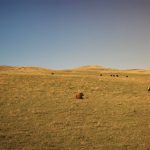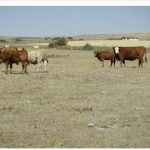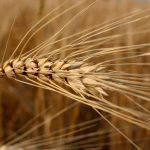Saskatchewan offered farmers $70 million in savings over the next two years, but it wasn’t enough for those looking for long-term measures in last week’s budget.
The highlights of the agricultural budget were a two-year $50 million program to reduce the education portion of property tax on farmland and the removal of the $900 cap on annual farm fuel rebates. The elimination of the cap will cost the province about $10 million a year.
Agriculture minister Dwain Lingenfelter said both measures will be viewed positively by farmers, and they were. But many said it was only a start.
Read Also

Land crash warning rejected
A technical analyst believes that Saskatchewan land values could be due for a correction, but land owners and FCC say supply/demand fundamentals drive land prices – not mathematical models
“The total assistance by both levels of government has certainly been reduced over the years and has impacted agriculture in this tough economic time,” said Saskatchewan Wheat Pool president Leroy Larsen. “I was hoping there would be more in agriculture.”
Shelly Dahlman, of the Saskat-chewan Women’s Agricultural Network, said the budget overall was a positive step for farm families.
“If maybe the federal government could take some of that into account we’d be further ahead,” she said.
Neal Hardy, vice-president of the Saskatchewan Association of Rural Municipalities, said the education tax rebate is a mixed blessing.
It will rebate 25 percent of the tax, except on the home quarter or the highest assessed quarter.
“I guess our only concern would be it wasn’t frozen,” Hardy said. “And if they don’t fund education to the level that they need to run a school system, then you know our mill rates will increase. The upside is that it’s 25 percent for two years.”
But Mike Badham, president of the Saskatchewan Urban Municipalities Association, said urban property owners should have received a break, too.
“Urban municipalities stood together with people in rural Saskat-chewan, particularly farmers, on the farm crisis issue,” he said. “Property tax should not be used to deal with individual kinds of producers. It looks like we’re going to have to wait again.”
Several critics said the removal of the fuel rebate cap won’t help a lot of farmers because many have switched to tax-free diesel.
Jim Robbins, who farms at Delisle, said he didn’t like the move.
“There’s a limited amount of money that’s available to help farmers,” he said. “I like it spread around more equitably rather than having it concentrated in few hands.”
Saskatchewan Party agriculture critic Bill Boyd said the budget lacked a long-term view.
“There is still a dramatic lack of vision, no word of a long-term safety net,” he said. “Farmers I think were looking for a clear signal in that area.”
Western Canadian Wheat Growers vice-president Greg Douglas agreed.
“We’re going to have to see that, because, frankly, decreasing taxes and saying you have a little bit more money for highways, there’s so many more things we could be doing in rural Saskatchewan,” he said.
Lingenfelter said the budget was visionary in that it set aside $600,000 for a livestock monitoring and disease surveillance program. He said this will help Saskatchewan meet consumer demand in terms of food quality and safety.
Other budget measures included:
- A five-year program to rebate a portion of fuel tax to ethanol wholesalers.
- A three-year extension of the PST rebate on the construction of livestock and horticultural facilities.
- $500,000 to help new generation co-operatives do feasibility studies and business plans.
- An additional $15 million over the next three years for the Agri-Food Equity Fund.
- The development of a forage conversion program in time for 2001 seeding.

















